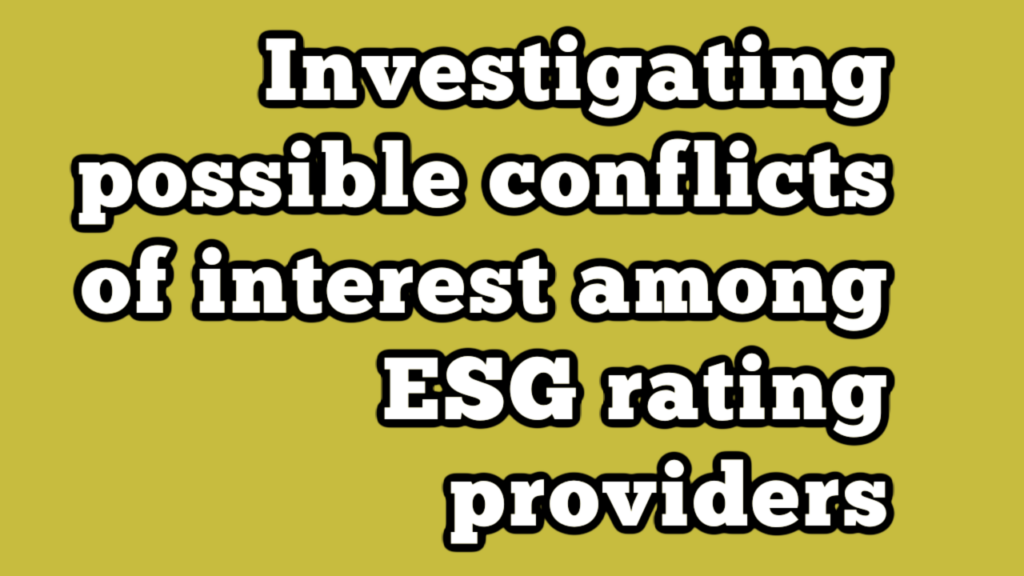Investigating possible conflicts of interest among ESG rating providers

Here’s a note from Mathieu Joubrel:
Are ESG rating agencies with index providing activities exposed to conflicts of interest?
Some companies entertain both activities at the same time, using their own opaque proprietary ratings to derive revenues from ESG-based indices.
Sonakshi Agrawal and his co-authors from Columbia Business School and Emory University – Goizueta Business School studied the influence of this second activity on the ratings issued by agencies in their paper “ESG Ratings of ESG Index Providers.”
👉🏼 Raters with strong indices licensing incentives (like MSCI Inc.) tend to issue better ratings to companies with high financial performances than raters with weak ones (like Refinitiv, an LSEG business).
👉🏼 These raters also tend to issue higher ratings to the companies included in their own indices, and lower to firms dropping from them.
👉🏼 Overall, the inclusion of companies into « sustainable » #indices managed by ESG rating agencies rather seems to be based on stock return.
👉🏼 Ratings divergence between agencies can come from both methodological differences and conflicting incentives from other revenue streams.
ESG rating agencies differ from credit rating agencies with their « investor pay » model, but they can still have financial incentives leading to conflicts of interest.
These conclusions highlight the need for greater transparency and accountability from ESG rating agencies regarding their incentives, data sources, and proprietary scoring models.
